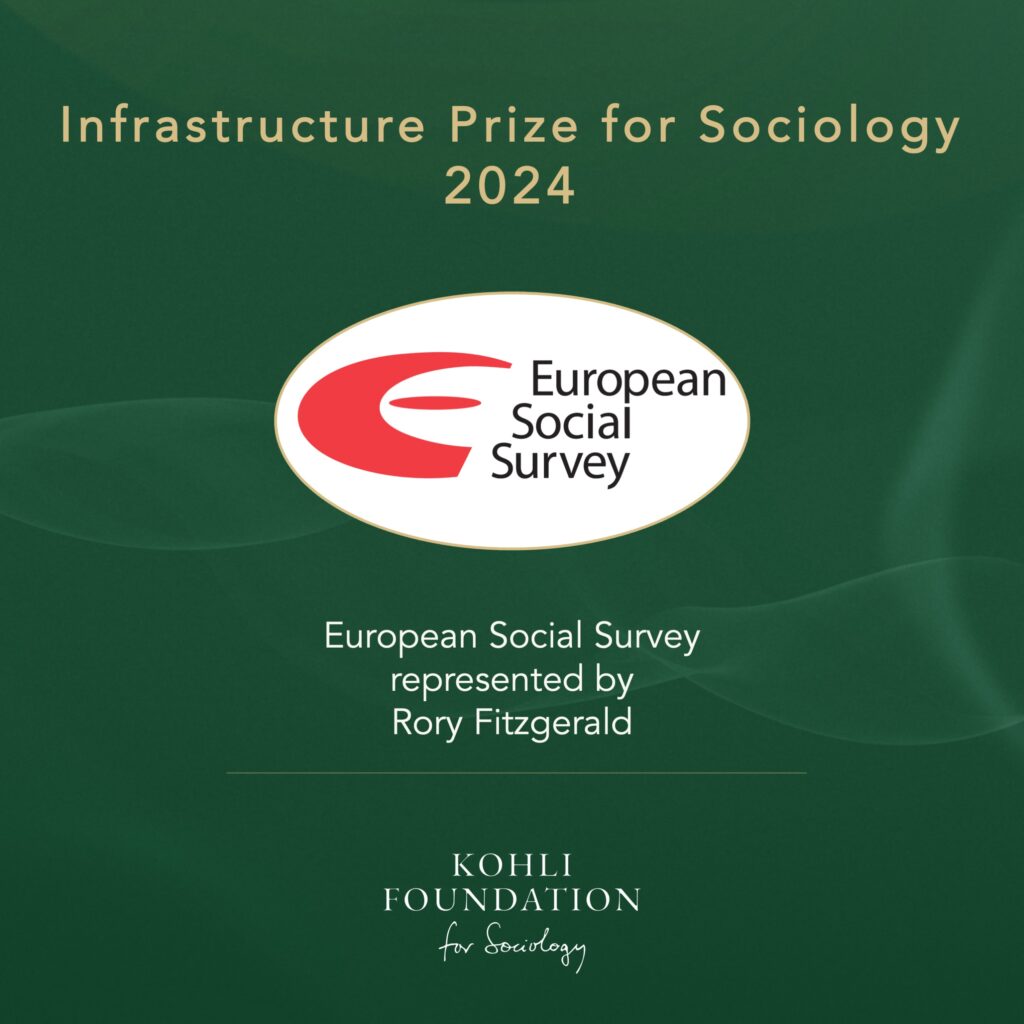The Kohli Foundation for Sociology is delighted to announce this year’s laureate of the Infrastructure Prize for Sociology. This year’s prize goes to the European Social Survey (ESS) represented by Rory Fitzgerald. With its European focus and excellent accessibility, the ESS is one of the outstanding infrastructure projects for sociology and related fields.
We are already looking forward to the award ceremony at the WZB Berlin Social Science Center on 13-14 November 2024.

About the ESS
The European Social Survey (ESS) is a pan-European research infrastructure providing freely accessible data for academics, policymakers, civil society and the wider public. It was awarded European Research Infrastructure Consortium (ERIC) status in 2013.
The ESS is an academically driven cross-national survey that has been conducted across Europe since its establishment in 2001. Every two years, interviews are conducted with newly selected, cross-sectional samples in around 30 countries on a wide range of subjects. The ESS was primarily designed as a comparative time series to monitor attitudes and values across Europe. The questionnaire therefore consists of a main core section that includes a number of questions that have been answered every two years since 2002/03. Additionally, in each round of the ESS, multi-national teams of researchers are selected to collaborate in the design of part of the questionnaire. Two ‘rotating’ modules are therefore selected following an open call for proposals.
As a result, the ESS always includes questions measuring ancestry; education; employment; financial circumstances; household composition; and other socio-demographics including gender and parental information. Attitudinal data collected in every round focuses on climate change and energy; crime and justice; democracy and government; immigration; health and wellbeing; institutional and social trust; media and internet use; European, national and ethnic identity; perceived discrimination; political affiliation, interest and participation; religion; social exclusion; and values.



